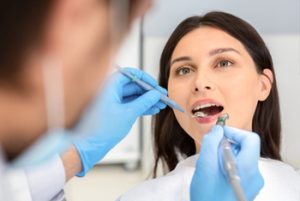Tooth pain can strike suddenly and with intensity, disrupting your day or even your sleep. Whether it’s a dull ache, sharp stab, or relentless throb, dental pain goes beyond being a simple annoyance. It’s frequently an indication of a deeper dental problem that needs attention. If you’re searching for how to stop tooth pain fast, you’re not alone. Understanding what causes tooth pain and knowing which remedies provide quick relief can make all the difference until you can see a dental professional.
In this guide, we’ll explore the causes of toothache pain, home remedies for immediate relief, and when to seek urgent dental treatment. We’ll also cover how to manage a toothache at night, what makes tooth pain worse, and practical tips to protect your oral health in the long term.
Immediate Toothache Relief: What Works Fast?
When dealing with a painful tooth, you want results fast. The following remedies can help provide temporary relief until you see a dentist.
1. Applying a Cold Compress
Applying an ice pack or cold compress to the side of your face can reduce swelling and numb pain by constricting blood vessels. For best results:
- Wrap a cold compress or a bag of frozen peas in a towel.
- Hold it against the affected area for 15–20 minutes.
- Repeat every few hours.
Cold compresses are especially useful when swelling accompanies the toothache. They also help reduce tooth pain and provide temporary relief, especially for an aching tooth caused by dental infection or gum disease.
2. Salt Water Rinse
One of the simplest home remedies, rinsing your mouth with warm water and salt helps to:
- Dislodge food particles
- Reduce inflammation
- Clean minor oral wounds
Mix half a teaspoon of salt in a glass of warm water and rinse your mouth thoroughly.
3. Clove Oil for Toothache Relief
Clove oil has long been used for toothache pain thanks to its natural anti-inflammatory effects and its capacity to numb pain. It contains eugenol, which has antibacterial and antioxidant activities.
How to use:
- Soak a cotton ball with clove oil and place it on the affected tooth.
- You can also blend several drops with a neutral carrier oil such as olive oil.
Use sparingly, as direct contact with gums may irritate sensitive tissues.
4. Over-the-Counter Medications
Pain relievers like ibuprofen or paracetamol can significantly relieve pain and reduce tooth pain. These over-the-counter medications work best when taken as directed and should be part of your pain management plan.
Tip: Ibuprofen is particularly effective because of its anti-inflammatory properties.
Avoid aspirin directly on the gum or tooth; it can cause oral burns.
5. Hydrogen Peroxide Rinse
A diluted hydrogen peroxide rinse can help kill bacteria, reduce plaque, and heal infected gums.
Use food grade hydrogen peroxide (3% solution), and mix equal parts with water. Rinse your mouth with the solution for about 30 seconds before spitting it out. Don’t swallow.
Note: Not suitable for children or those with a history of swallowing mouthwash.
How to Sleep Through a Toothache at Night

- Keep your head elevated with an extra pillow to limit blood pressure in the head.
- Avoid eating or drinking cold, hot, or sugary foods before bed.
- Use pain medication at least 30 minutes before sleeping.
- Try a cold compress just before bed.
- Consider rinsing with salt water or hydrogen peroxide for added relief.
Home Remedies That Provide Temporary Relief
While these won’t solve the problem long-term, they can alleviate pain while waiting for your dental treatment.
1. Baking Soda Paste
Combine water and baking soda to form a paste, then spread it over the aching tooth or affected area to reduce swelling and draw out infection.
2. Peppermint Tea Bag
A cooled tea bag can help numb pain and reduce discomfort.
- Steep a peppermint tea bag and let it cool.
- Place the bag on the sore spot for 10–15 minutes.
3. Garlic Paste
Garlic contains allicin, a natural antibacterial. Mash a clove into a soft paste and gently place it on the aching tooth. Rinse with warm water after a few minutes.
What Makes Tooth Pain Worse?
If you want to know how to stop tooth pain fast, it’s equally important to understand what can make dental problems worse:
- Cold or hot food: Sensitivity to temperature can worsen pain.
- Sugary snacks: These feed bacteria that cause decay.
- Teeth grinding: This can aggravate an already painful tooth.
- Touching or poking: This can further irritate an affected tooth or oral wound.
Avoid all of the above until the pain is resolved or you’re under professional care.
When to See a Dentist
Even the best home remedies and temporary pain relief methods are not substitutes for professional dental treatment. It’s time to see a dentist if you experience:
- Severe pain that doesn’t subside
- Swelling of the face or jaw
- Trouble breathing or swallowing
- Fever or chills (may indicate a tooth infection or dental abscess)
- Signs of infected gums or loose teeth
- Toothache lasting more than two days
Seeking care promptly improves the likelihood of preserving your natural tooth and avoiding complications.
Common Dental Treatments for Toothache
Depending on the underlying cause, your dentist might suggest:
- Fillings: For cavities and tooth decay
- Root canal treatment: Recommended when the pulp inside the tooth becomes infected
- Tooth extractions: For irreparably damaged or wisdom teeth
- Dental crowns: To protect a structurally compromised tooth
- Gum treatment: For gum disease or infection
- Professional cleaning: To remove hardened plaque and prevent decay
Each of these dental treatments targets the source of your pain, not just the symptoms.
Preventing Tooth Pain in the Future
Once your pain is managed, it’s time to think ahead. Prevent future issues by improving your oral health habits:
- Brush two times daily using a fluoride-based toothpaste
- Use dental floss each day to eliminate food debris and plaque build-up
- Avoid sugary drinks and acidic foods
- Schedule regular check-ups with your dental professional
- Use a night guard if you grind your teeth
- Don’t ignore minor sensitivity; early action prevents serious dental issues
Being proactive today can save you from pain tomorrow.
Exploring Common Causes of Tooth Pain and When to Act Fast
Understanding what’s causing pain in your mouth isn’t always straightforward. A throbbing toothache could be due to something minor, like trapped food particles or something more serious, such as a dental abscess or tooth infection. Recognising the underlying cause helps you choose the right approach, whether that’s a home remedy or urgent dental treatment.
Here are some of the most common causes of dental pain and what you should do if you experience them.
1. Tooth Decay and Cavities
Tooth decay is one of the most frequent culprits of tooth pain. It begins when plaque, bacteria, and sugars erode the tooth enamel, eventually creating holes (cavities). As the decay deepens, it can reach the tooth pulp and blood vessels, resulting in severe discomfort.
If you’re dealing with a painful tooth that seems sensitive to sweet foods, fluoride toothpaste can help in the early stages. But if the damage is already causing noticeable pain, you’ll likely need a filling or more extensive dental treatment.
2. Gum Disease and Gum Infection
Gum disease and infected gums often start with redness, swelling, or bleeding and may be painless initially. However, as the issue advances, it may lead to toothache pain, referred pain in the jaw, or a sore tooth.
In such cases, simple rinses using salt water or diluted hydrogen peroxide can offer temporary pain relief, but only a dental professional can clean beneath the gum line and treat the infection effectively.
3. Teeth Grinding (Bruxism)
Teeth grinding often occurs unconsciously, particularly while sleeping. Grinding teeth wears down enamel and stresses your jaw, leading to aching teeth and even cracks in your molars. This can make tooth pain worse, particularly in the morning.
Managing bruxism may involve a night guard, stress reduction, and avoiding triggers like caffeine. If you’re already feeling discomfort, a cold compress or ice pack may help numb pain and reduce swelling in the jaw muscles.
4. Wisdom Teeth
Third molars usually begin to surface during the late teenage years or early twenties, and their eruption often causes pain due to crowding, inflammation, or partial impaction. If left untreated, they can trap bacteria, leading to infection or decay in nearby teeth.
Temporary pain relief methods like over the counter medication or home remedies (e.g. clove oil) may help, but in most cases, the long-term solution is extraction by a dentist.
Final Thoughts: Don’t Wait to Get Rid of Toothache Pain
Toothaches can feel overwhelming, but fast action can bring swift pain relief. Whether you’re battling a mild sore tooth or intense dental pain, the methods shared in this guide can provide temporary relief while helping you understand the importance of dental care.
Remember: knowing how to stop tooth pain fast doesn’t mean skipping a visit to the dentist. Home remedies such as applying a cold compress, rinsing with warm salt water, or using clove oil can help alleviate pain, but they’re not a substitute for dental treatment. Prioritise your oral health, listen to your body, and seek professional help when needed.
When dealing with ongoing or intense toothache discomfort, don’t delay; book an appointment with your dental professional immediately. It’s the best way to get to the root of the problem and protect your smile for the long run.
If you’re experiencing severe or ongoing dental pain and need prompt attention, don’t hesitate to reach out for help. For more information or to arrange emergency care, please contact us on (08) 7078 8263 or visit our Contact Us page.
Note: Any surgical or invasive procedure carries risks. Before proceeding, you should seek a second opinion from an appropriately qualified health practitioner
Resources
Mayo Clinic Staff (2023). ‘Cavities and tooth decay’. Mayo Clinic, 30 November. Rochester, MN: Mayo Foundation for Medical Education and Research. https://www.mayoclinic.org/diseases-conditions/cavities/symptoms-causes/syc-20352892
Cleveland Clinic (2023). ‘Abscessed Tooth’. Cleveland Clinic, 27 March. Cleveland, OH: Cleveland Clinic. https://my.clevelandclinic.org/health/diseases/10943-abscessed-tooth
Mayo Clinic Staff (2023). ‘Periodontitis’. Mayo Clinic, 24 February. Rochester, MN: Mayo Foundation for Medical Education and Research. https://www.mayoclinic.org/diseases-conditions/periodontitis/symptoms-causes/syc-20354473
Whelan, C. (2020). ‘6+ Remedies for Teeth Grinding (Bruxism)’. Healthline, 8 July (updated). San Francisco, CA: Healthline Media. https://www.healthline.com/health/how-to-stop-grinding-teeth


